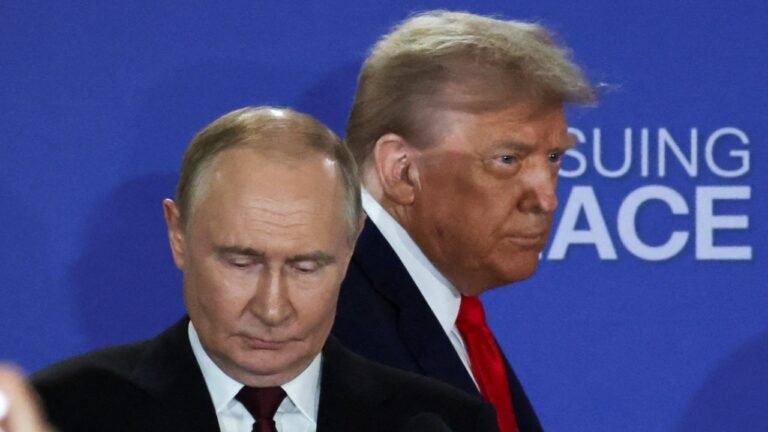
Contents
US Imposes Sanctions on Russia’s Largest Oil Firms to Curb War Funding in Ukraine
The United States has imposed sanctions on Russia’s two largest oil firms, Rosneft and Lukoil, in a bid to curb Moscow’s war funding and push for an end to the conflict in Ukraine. The move comes as Russia conducted large-scale nuclear training drills, and Washington delayed plans for a second summit between US President Donald Trump and Russian President Vladimir Putin.
The US Department of the Treasury’s Office of Foreign Assets Control (OFAC) announced the new sanctions, targeting both companies and several of their subsidiaries. The measures aim to degrade Russia’s ability to fund its military operations and weaken its energy-dependent economy. This development is the latest in a series of diplomatic efforts by the US to end the war in Ukraine, with the US government emphasizing that a permanent peace depends entirely on Russia’s willingness to negotiate in good faith.
Background and Context
The conflict in Ukraine has been ongoing, with Russia’s involvement being a significant point of contention. The US and its allies have been working to support Ukraine and pressure Russia to negotiate a peace settlement. The latest sanctions are a part of this broader effort, aimed at targeting Russia’s energy sector, which is crucial to its economy. The US government hopes that by imposing these sanctions, Russia will be compelled to take a more serious approach to peace negotiations.
Key Highlights of the Sanctions
* The sanctions target Rosneft and Lukoil, Russia’s two largest oil firms, as well as several of their subsidiaries.
* The measures block all property and interests in property of the companies within US jurisdiction.
* The sanctions extend to any entity in which the sanctioned firms hold a direct or indirect ownership of 50 per cent or more.
* US citizens and institutions are prohibited from engaging in transactions involving these entities unless explicitly licensed by the Treasury.
According to Treasury Secretary Scott Bessent, the sanctions are part of President Donald Trump’s broader diplomatic effort to end the war. Bessent emphasized the need for an immediate ceasefire, stating, “Now is the time to stop the killing and for an immediate ceasefire.” The US government has also called on its allies to align with the new measures, with Bessent saying, “We encourage our allies to join us and adhere to these sanctions.”
International Response
The European Union has also approved its 19th sanctions package against Russia, introducing the bloc’s first-ever ban on Russian liquefied natural gas (LNG). The package includes:
* A ban on Russian LNG, with short-term contracts being phased out within six months and long-term deals ending by January 1, 2027.
* New travel curbs on Russian diplomats.
* The addition of 117 ships from Moscow’s “shadow fleet,” bringing the total to 558.
* Several banks in Kazakhstan and Belarus listed for aiding sanctions evasion.
The international community’s response to the conflict in Ukraine has been significant, with many countries imposing sanctions on Russia and providing support to Ukraine. The latest sanctions by the US and the EU are a part of this broader effort to pressure Russia to negotiate a peace settlement.
Impact on Russia’s Economy
The sanctions are expected to have a significant impact on Russia’s economy, which is heavily dependent on its energy sector. The measures will limit Russia’s ability to fund its military operations and will likely lead to economic instability. The US government hopes that this pressure will compel Russia to take a more serious approach to peace negotiations.
As President Donald Trump stated, “These are tremendous sanctions. These are very big against their two big oil companies — and we hope that they won’t be on for long. We hope that the war will be settled.” The US government remains committed to pursuing a diplomatic resolution to the conflict, but the latest sanctions demonstrate its willingness to take a tougher stance to achieve this goal.
Conclusion:
The US imposition of sanctions on Russia’s largest oil firms, Rosneft and Lukoil, marks a significant escalation in the diplomatic effort to end the conflict in Ukraine. The measures aim to degrade Russia’s ability to fund its military operations and weaken its energy-dependent economy. As the international community continues to pressure Russia to negotiate a peace settlement, the latest sanctions demonstrate the US government’s commitment to supporting Ukraine and achieving a permanent peace in the region.
Keywords:
* US sanctions
* Russia
* Ukraine
* Rosneft
* Lukoil
* Energy sector
* Diplomatic efforts
* Conflict resolution
* Economic sanctions
* International relations
* Geopolitics
Hashtags:
* #USSanctions
* #Russia
* #Ukraine
* #EnergySector
* #DiplomaticEfforts
* #ConflictResolution
* #EconomicSanctions
* #InternationalRelations
* #Geopolitics
* #ForeignPolicy
* #GlobalNews
* #CurrentEvents
Source link